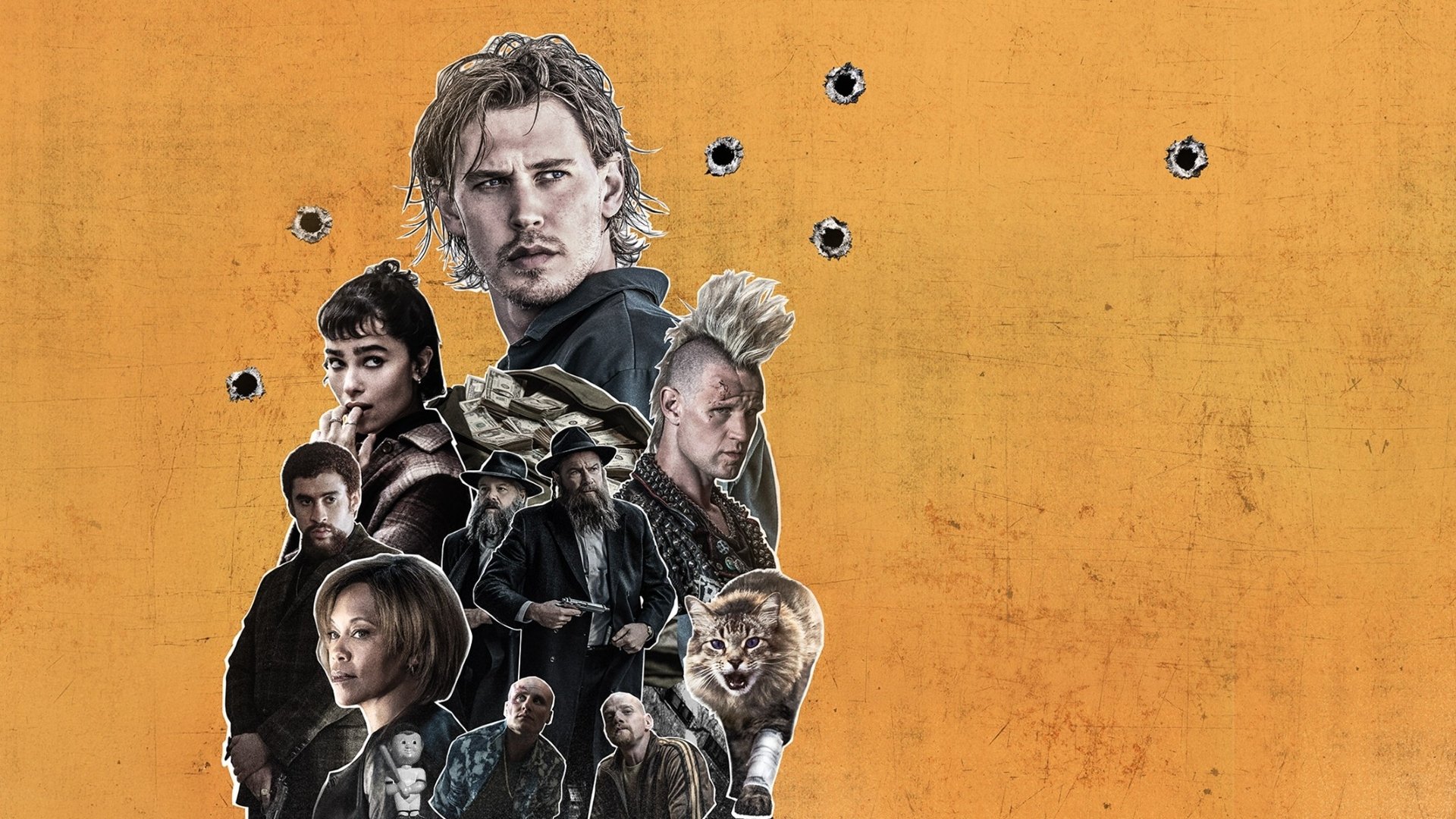
Fucked life and fucked choices. For a while, I thought maybe that was the point — a reflection of how life grinds people down with its unrelenting blows — but alas, no.
We’re in 1998 New York. Supposedly (more on that later). Hank (Austin Butler) is a washed-up former baseball player turned bartender who gets roped into cat-sitting for his neighbour Russ (Matt Smith). What sounds like a simple favour quickly turns into a bloody mess. The Russians show up, beat the life out of him, and he ends up in hospital for a few days in a coma, waking up to Yvonne (Zoë Kravitz) telling him that he’s missing a kidney. Damn.
Austin and Zoë have instant on-screen chemistry, easily selling the hot city dwellers in a situationship story. Zoë has a magnetism that reminds you why her version of Catwoman was one of the best, and Butler plays into his “hot guy drifting through life” routine like he previously auditioned for Amazon Prime’s Roadhouse reboot. It’s pulpy, it’s sweaty, and honestly, I was here for it.
Then the first beatdown hits, and my god, it’s savage. The tension beforehand is palpable because you can feel where the scene is going, but the sheer brutality of the beating still shocks. It’s the kind of violence that dances with body horror and actually made me wince a few times. That’s rare for me, which probably means I’ve been watching too many PG-rated dramas lately.
For a moment, the film nails the realism. The violence has weight and consequence. But then suddenly Hank is up, running around the city like losing an organ is just a mild inconvenience. It’s jarring.
And speaking of the city, this might be the weirdest depiction of New York I’ve seen. I’ve been there plenty of times and seen it even more on screen, but this version is inconsistent. Some shots feel authentic and lived-in, others look like Glasgow trying on a Manhattan costume. It kept taking me out of the story.
Zoë’s character is killed off-screen (not that I wanted to see it as I liked her character), and the film loses its soul as a result. She was the emotional anchor, the one human thread holding this chaos together. Without her, everything becomes white noise blur of running and violence.
From there, the pacing unravels. What started sharp and propulsive begins to wander. The Jewish assassins, played with grit and precision by Liev Schreiber and Vincent D’Onofrio, vanish for half the movie and pop back up like the film suddenly remembered them in post. The Russians, meanwhile, slide from threatening to cartoonish. The sense of dread that should hang over them simply doesn’t.
Regina King shows up as a cop after the initial beating, and you suspect she isn’t a clean one — which turns out to be true. This wasn’t necessarily a bad performance, but it wasn’t her best either, which is a shame given her usual power. Bad Bunny’s performance is predictably ill-fitting, so she gets to hide behind that until his character is (mercifully) snuffed.
Matt Smith, though, steals every scene he’s in. His line “token gentile” is a gem I’ll be quoting forever, and his “please” post-gun-threat was such a British full stop to a sentence, I actually chuckled. It’s just a shame there wasn’t more of him, because that energy could have carried the film across the finish line respectably, alongside Butler.
Eventually, the film thematically circles back to its opening with a repeated car crash that once defeated Hank. (He killed his friend in the crash and since then his life has taken a downward spiral.) This time, the crash is meant to free him, symbolically killing the Jewish assassins. It doesn’t land and comes across as more corny than poetic. The “redemption” scene with Hank and his mother beforehand feels like a cheap attempt at emotional closure that the film never earns.
Caught Stealing starts from a stylish, three-dimensional high (shot with Aronofsky-lite grit) and collapses into a flat mash-up of gore, running, and a bitter Hollywood happy-ending cherry.
🎬 Verdict
2 / 5 — Starts hot, ends cold. Stylishly brutal, occasionally affecting, but ultimately collapses under its own messiness.
Best for: Viewers who like pulpy thrillers with flashes of style and don’t mind if logic takes a back seat.
Skip if: You want coherent storytelling, emotional weight, or a New York that actually feels like New York.